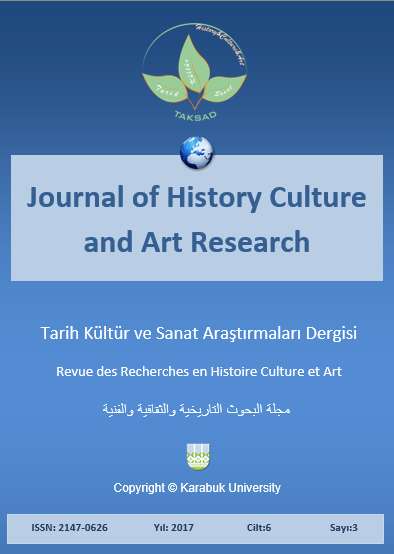The Problem of Aim of Science in the Philosophy of Scientific Realism
DOI:
https://doi.org/10.7596/taksad.v6i3.1019Keywords:
Scientific realism, truth, aim of science, demarcation of science, artifacts, social constructivism, conventionalism.Abstract
The article deals with the problem of immanent aim of the scientific cognition. The relationship between science and reality is viewed from the standpoint of scientific realism, resting upon the axiom that theories are assertions about the reality independent of human experience and even of reason itself. The authors argue that the adoption of scientifically-realistic ideal of science gives us a simple and reliable criterion the demarcation of scientific and non-scientific knowledge. But the scientific realism can go beyond the bounds of “philosophical belief” only having turned itself towards the world of objectively practical activity – into the world of “artifacts”, created by human labour. It is in this objective world of material culture scientific theories are being “verified” or “falsified”, and science, in a whole, finds its highest aim and implementation. The authors conclude that the study of the “fourth world” of material culture, in which science finds its true practical implementation, should be the cornerstone of scientific realism.
References
Fine, A. (1986). Unnatural attitudes: realist and instrumentalist attachments to science. Mind, 95, pp. 149 179.
Hacking, I. (1983). Representing and Intervening: Introductory Topics in the Philosophy of Natural Science. Cambridge: Cambridge University Press.
Kalinina, G. N., & Rimskaya O. N. (2015), Communicative Science as an “alternative”, in: Belgorod State University Scientific Bulletin: Philosophy, Sociology, Law, 14, pp. 21-27 (in Russian).
Laudan, L. (1986). Science and Values: The Aims of Science and Their Role in Scientific Debate. Berkeley: University of California Press.
Moskovkin, V. M. (2011). Open access to scientific knowledge and feudalism knowledge: Is there a connection?, in: Webology, 8 (1), Article 83.
Nevleva, I. M. (2013). Science and the Formation of the Civilizational Paradigm of the New Ages, in: Belgorod State University Scientific Bulletin: Philosophy, Sociology, Law, 16, pp. 97-112 (in Russian).
Niiniluoto, I. (1999). Critical Scientific Realism. Oxford: Oxford University Press.
Popper, K. R. (2013). Realism and the Aim of Science: From the Postscript to The Logic of Scientific Discovery. London: Routledge.
Popper, К. R. (1972). Objective Knowledge: An Evolutionary Approach. London: Oxford University Press.
Psillos, S. (1999). Scientific Realism. How Science Tracks Truth. London: Routledge.
Putnam, H. (1975). Mathematics, Matter, and Method. Cambridge University Press Archive.
Rezhabek, E. Ja. (2007). V poiskakh racional’nosti. M.: Akademicheskij proekt (in Russian).
Sellars, W. (1997). Empiricism and the Philosophy of Mind. Harvard University Press.
Van Fraassen, B. C. (2004). The Scientific Image. Oxford: Oxford University Press.
Downloads
How to Cite
Issue
Section
License
All papers licensed under Creative Commons 4.0 CC-BY.- Share — copy and redistribute the material in any medium or format
- Adapt — remix, transform, and build upon the material for any purpose, even commercially.
Under the following terms:
Attribution — You must give appropriate credit, provide a link to the license, and indicate if changes were made. You may do so in any reasonable manner, but not in any way that suggests the licensor endorses you or your use.
- No additional restrictions — You may not apply legal terms or technological measures that legally restrict others from doing anything the license permits.







